daimyo, interesting neighborhoods
Daimyo and Other Interesting Neighborhoods in Japan
Thuy Fang
Posted on May 13, 2024
Share:
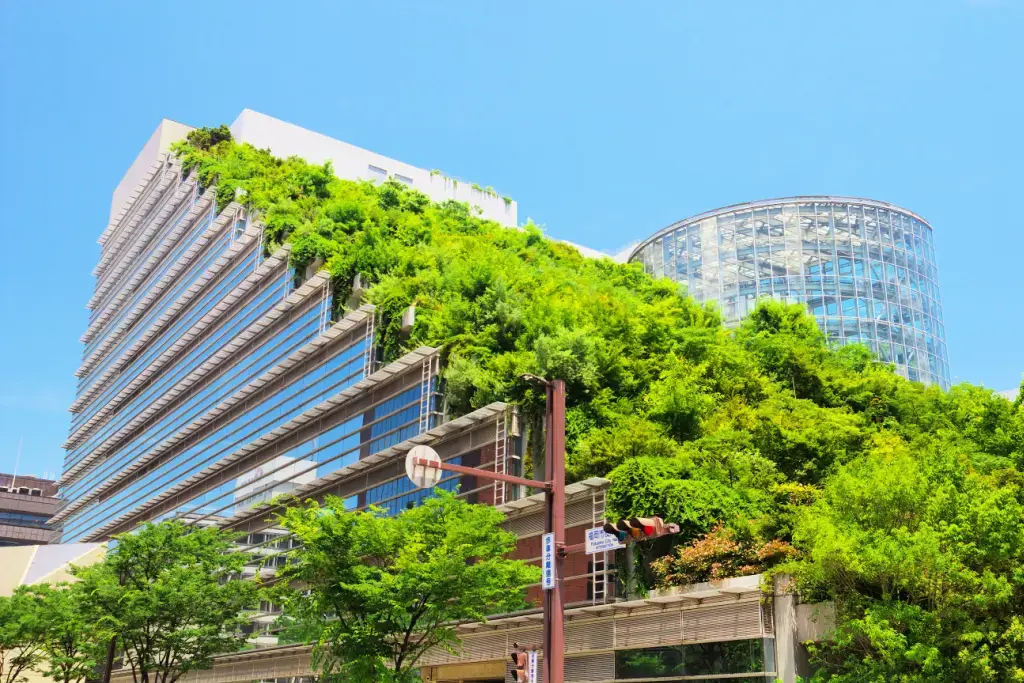
If you want to enjoy the tranquility of the streets or simply admire the exclusive architecture of a town, Japan has many attractive neighborhoods, like Daimyo in Fukuoka, to discover! Most cities and towns in Japan have diverse neighborhoods, from traditional to modern and from Japanese and Western. Below are five unique destinations you should note down when visiting Japan!
Daimyo (Fukuoka)
Daimyo is an awesome neighborhood between Tenjin and Akasaka Stations in Fukuoka. Despite its compact size, it packs a punch with cool shops, cafes, diners, and fun things to do for everyone. This neighborhood is a playground for vintage enthusiasts.
Many thrift stores here have got everything from unique stuff to classic favorites. Shops like Bingo Bongo can make you happy with their carefully chosen collections of second-hand clothing. And don’t forget to explore the record stores! Whether you’re into hip-hop or jazz, places like Ticro Market and Catfish have something for every music lover.
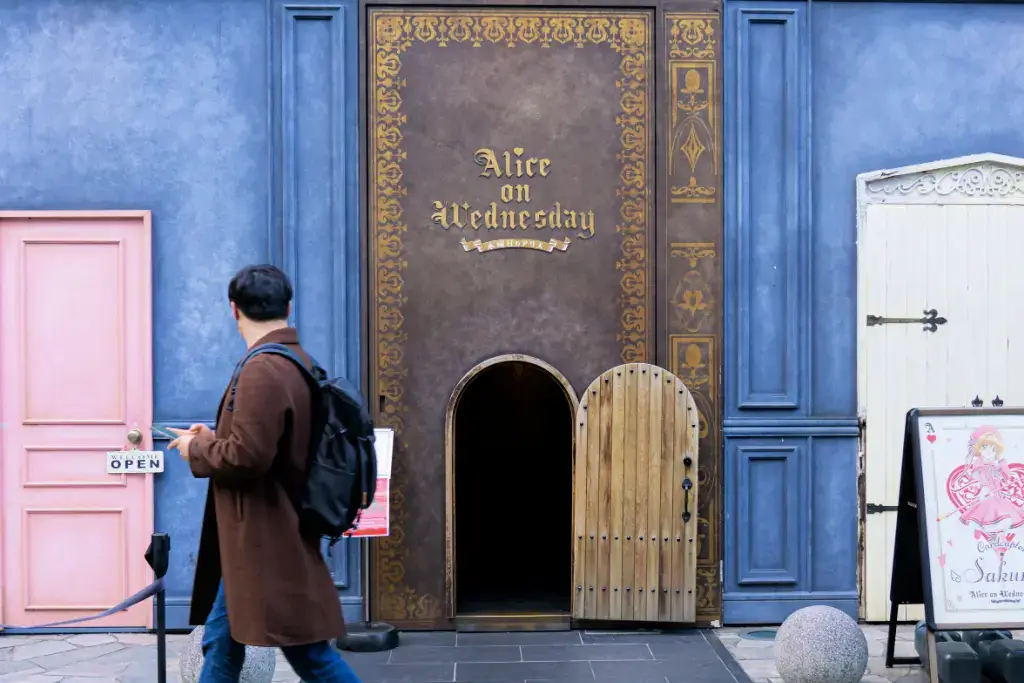
You’ll need to refuel after a busy shopping day, and Daimyo has you covered. You can cozy up in a café for exceptional coffee or head to a trendy bar for artisanal brews with a Western vibe. When night falls, Daimyo lights up with many fun bars and clubs where you can dance to lively music or just chill out.
But Daimyo isn’t just about shopping and dining; it’s also full of history. Daimyo used to be part of the old town near Fukuoka Castle. ts streets are a testament to the city’s rich heritage. Also, despite its modern makeover, Daimyo retains its traditional charm, with narrow streets and secret alleyways waiting for you to explore.
Johnson Town (Saitama)
Johnson Town, located in Iruma City, is an intriguing spot that takes you back to the 1950s. It was initially part of the Johnson Air Base, where American soldiers lived after World War II. This area is now a blend of American nostalgia and Japanese innovation.
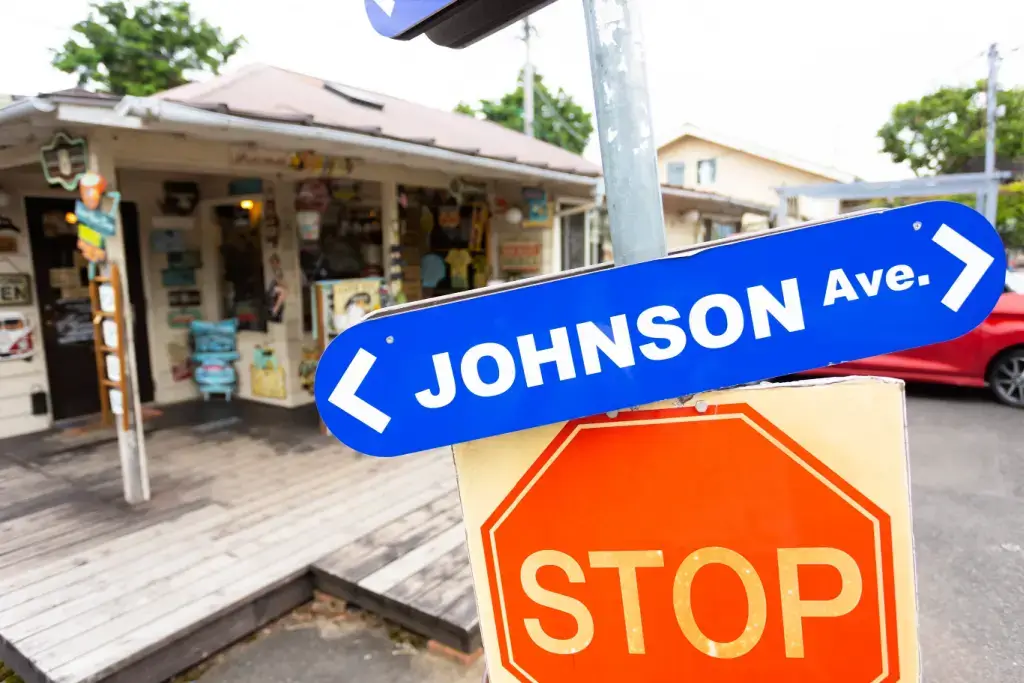
The houses here are “U.S. Army Houses,” meticulously restored and preserved. Originally built to accommodate American military personnel and their families, they reflect the suburban lifestyle of that era.
Johnson Town is a vibrant community with over 50 businesses serving locals and visitors. You can check out excellent boutique shops with original clothing and unique products! Galleries display local artwork, and cafes dish out delicious American-style and fusion cuisine.
Akizuki Castle Town (Fukuoka)
Akizuki Castle Town is like a hidden gem where history dances with nature. Over 800 years ago, the stronghold of the mighty Akizuki and Kuroda clans ruled over the Chikuzen Province. You’ll find many old samurai homes surrounded by clay moats and streets adorned with moss-covered stone walls in the town.
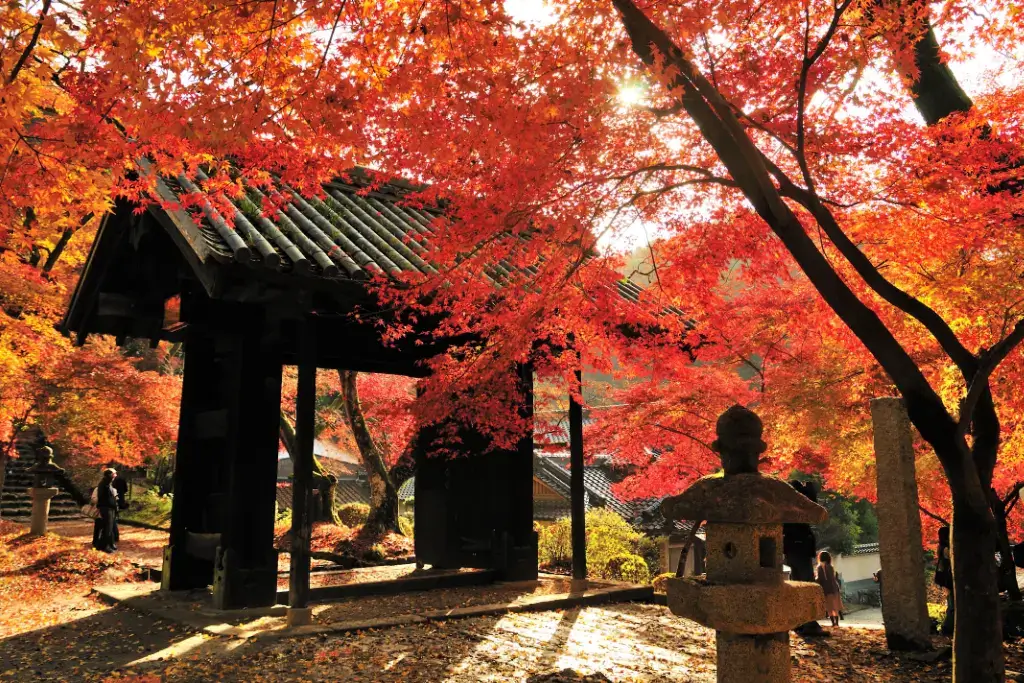
The castle was once a small fortress built in 1203 and rebuilt in 1623. While much of it is ruins, remnants like the Kuromon Gate, which guards the entrance to Suiyo Shrine, remain. In autumn, stroll down Suginobaba-dori (Akizuki’s main street), and you’ll be greeted by vibrant maple trees, turning the street into a colorful wonderland.
Moreover, walking around Akizuki is like stepping into a living museum. You’ll find quaint shops selling unique crafts and yummy treats. Furthermore, don’t miss Kosyoan, a Japanese-style cafe where you can sip tea encircled by cherry blossoms in spring. And speaking of cherry blossoms, this castle town is famous for its breathtaking display along Suginobaba-dori. It’s a street with many sakura trees that date back over a century!
Are you looking for some great snacks while exploring new neighborhoods? Check out Sakuraco! Sakuraco delivers traditional Japanese snacks, teas, sweets, and snacks from local Japanese makers directly to your door so you can enjoy the latest treats directly from Japan!
Kitano Ijinkan (Kobe)
Kitano Ijinkan is a tranquil Kobe neighborhood full of beautiful old houses that tell stories of a time long ago. In the late 1800s and early 1900s, this area was where foreign traders and diplomats set up their homes. The houses here look different from the usual Japanese ones because they use a Western architectural style. Not to mention, at one point, there were over 300 of them; now, there are only about 20 left that you can visit.
One of the most legendary houses in Kitano Ijinkan is called Uroko House because the outside walls look like fish scales! Inside, you can see all sorts of fancy old furniture and decorations. There’s also a museum on the top floor where you can see beautiful paintings.
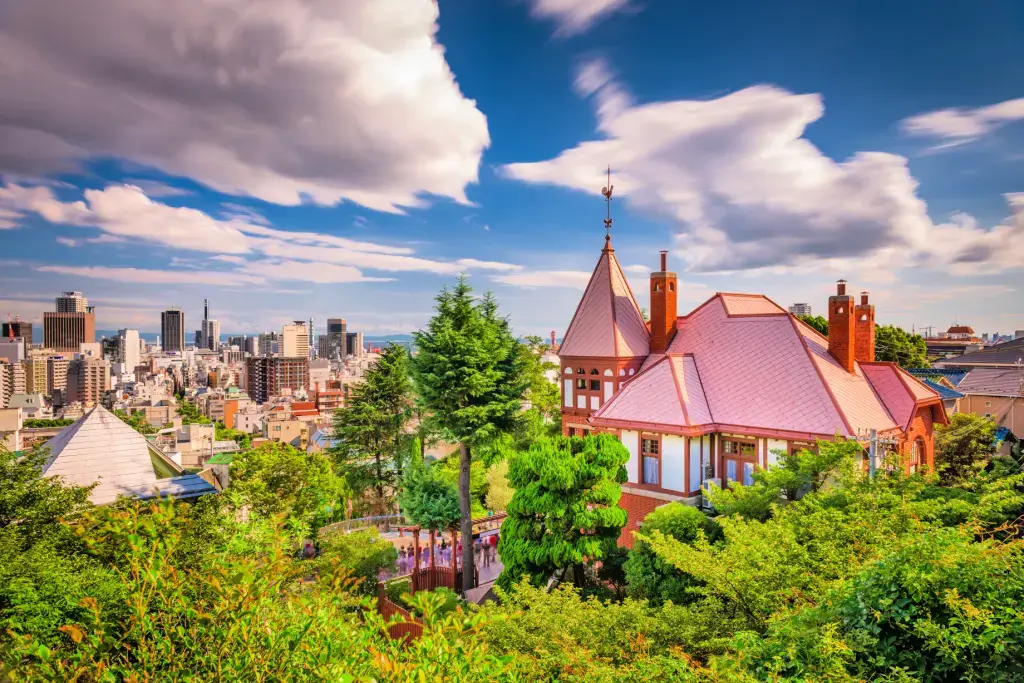
Another beloved house is the Weathercock House, built by a German trader. Weathercock House is distinctive because it’s made of brick, which is unusual for Japan. Additionally, it has a super cool tower that you can climb up to see a fantastic view of Kobe!
There are lots of other houses to explore, too! After you’ve enjoyed exploring the houses, you can stop by one of the nearby cafes for a snack. You should also try the tasty cheesecake and shortcake, as they’re Kobe’s sweet specialties!
Meijiro (Tokyo)
Mejiro is a charming neighborhood located in Toshima Ward, Tokyo, one stop away from Ikebukuro. It’s famous for its relaxed atmosphere and historical significance. “Mejiro” comes from Mejiro Fudo Temple, one of the Goshiki Fudo Temples. These temples were part of Buddhist texts associated with five colors, and Mejiro means “white eyes” in Japanese. Mejiro has a rich history, once serving as the residence for feudal lords and government officials during the Edo Period.
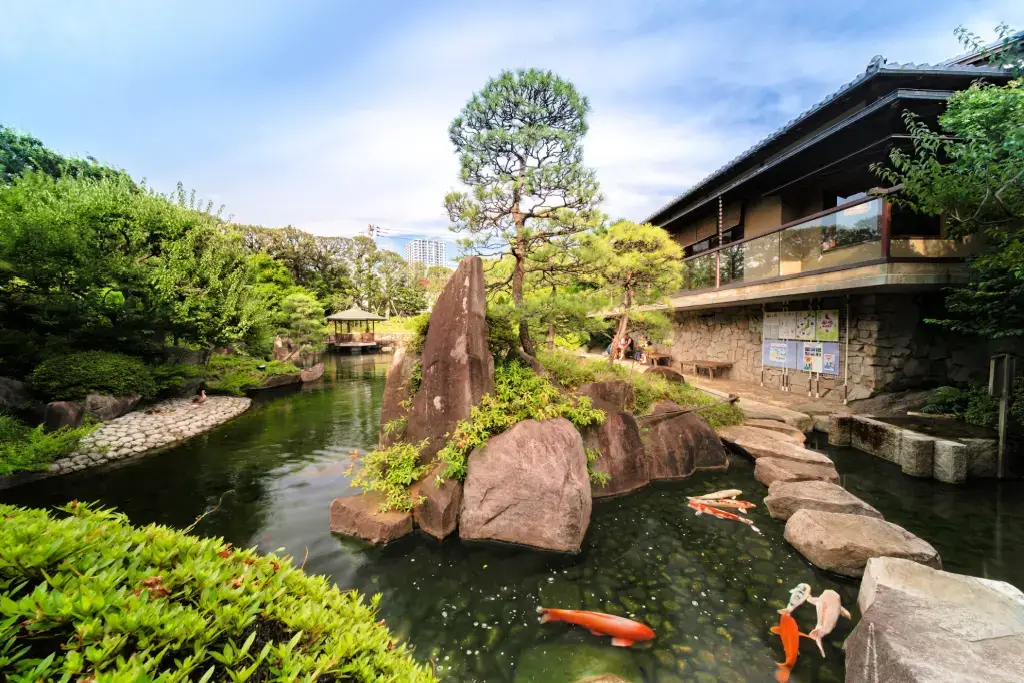
Today, Mejiro is famous for being the home of Gakushuin University, a prestigious institution whose attendees include the Imperial Family and Japan’s elite members. This area is also famous for its peaceful and posh residential atmosphere, attracting families seeking top-notch education for their children.
Tree-lined streets, elegant houses, and a mix of modern amenities and historical landmarks characterize the neighborhood. Visitors can also explore Mejiro’s lovely boutiques, cozy cafes, and traditional Japanese confectionary.
Why are exciting neighborhoods like Daimyo important?
Each neighborhood, such as Daimyo, Kitano Ijinkan, or Akizuki Castle Town, offers a delightful blend of history, culture, and charm that showcases Japan’s rich heritage and adaptation. Moreover, these areas allows you to immerse yourself in the local way of life, from experiencing traditional architecture to sampling delicious cuisine. Share your thoughts with us in the comments below, and let us know which neighborhood you’d love to discover first!
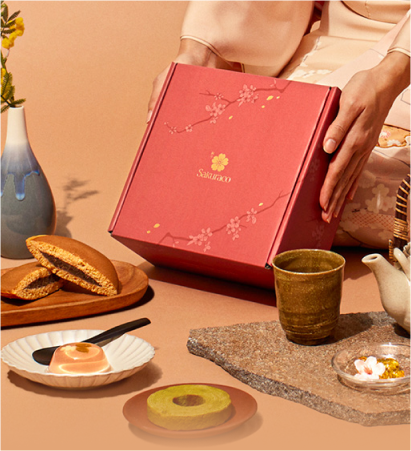
Discover authentic flavors with Sakuraco
Get Sakuraco 

Discover authentic flavors with Sakuraco
Get Sakuraco 
Related Articles
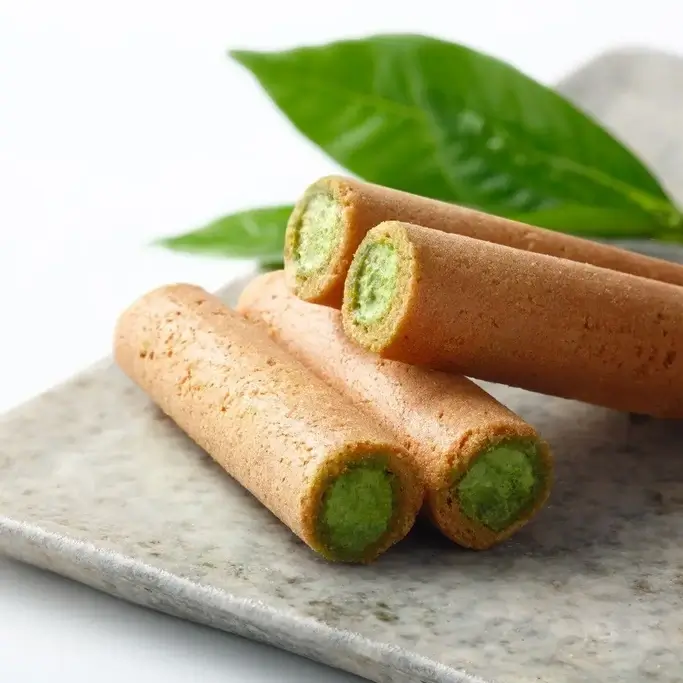
Tsujiri no Sato: The Charm of Uji Matcha Flavor
Matcha is a finely crafted green tea powder that represents elegance and a deep appreciation for nature in Japanese tea ceremony culture. This tea flavor is widely used in many types of Japanese sweets and snacks, including Tsujiri no Sato. L
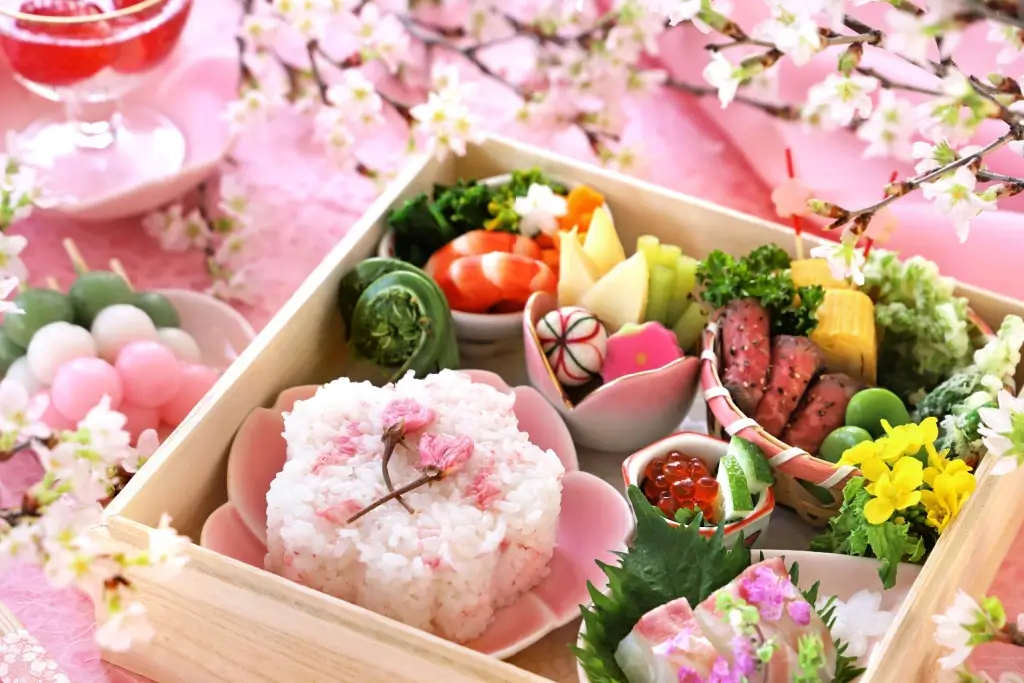
Cherry Blossoms in Japanese Food: The Ultimate Guide!
Cherry blossoms brighten Japan’s spring landscape with their delicate pink hues, and they also find their way into kitchens across the country, where cooks transform these fleeting petals into flavorful ingredients for both sweet and savory dishes.
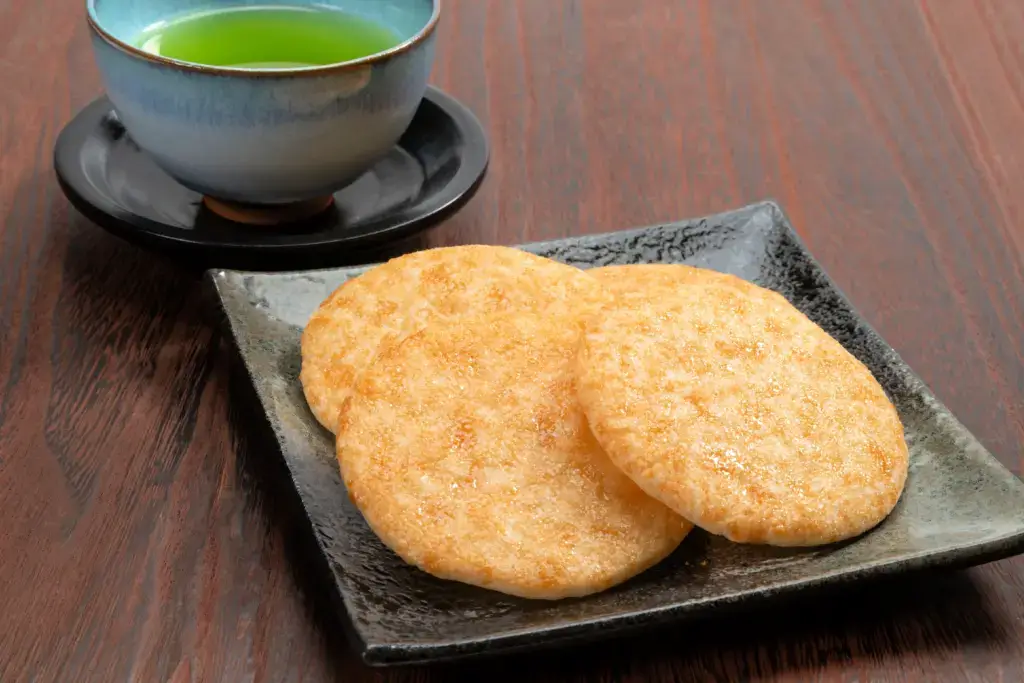
Sugi Confectionery: Aichi’s Crunchy Little Secret
In Aichi Prefecture, where bold flavors and everyday comfort food shine, Sugi Confectionery (Sugi Seika) quietly steals the spotlight with simple, crunchy snacks full of local charm.
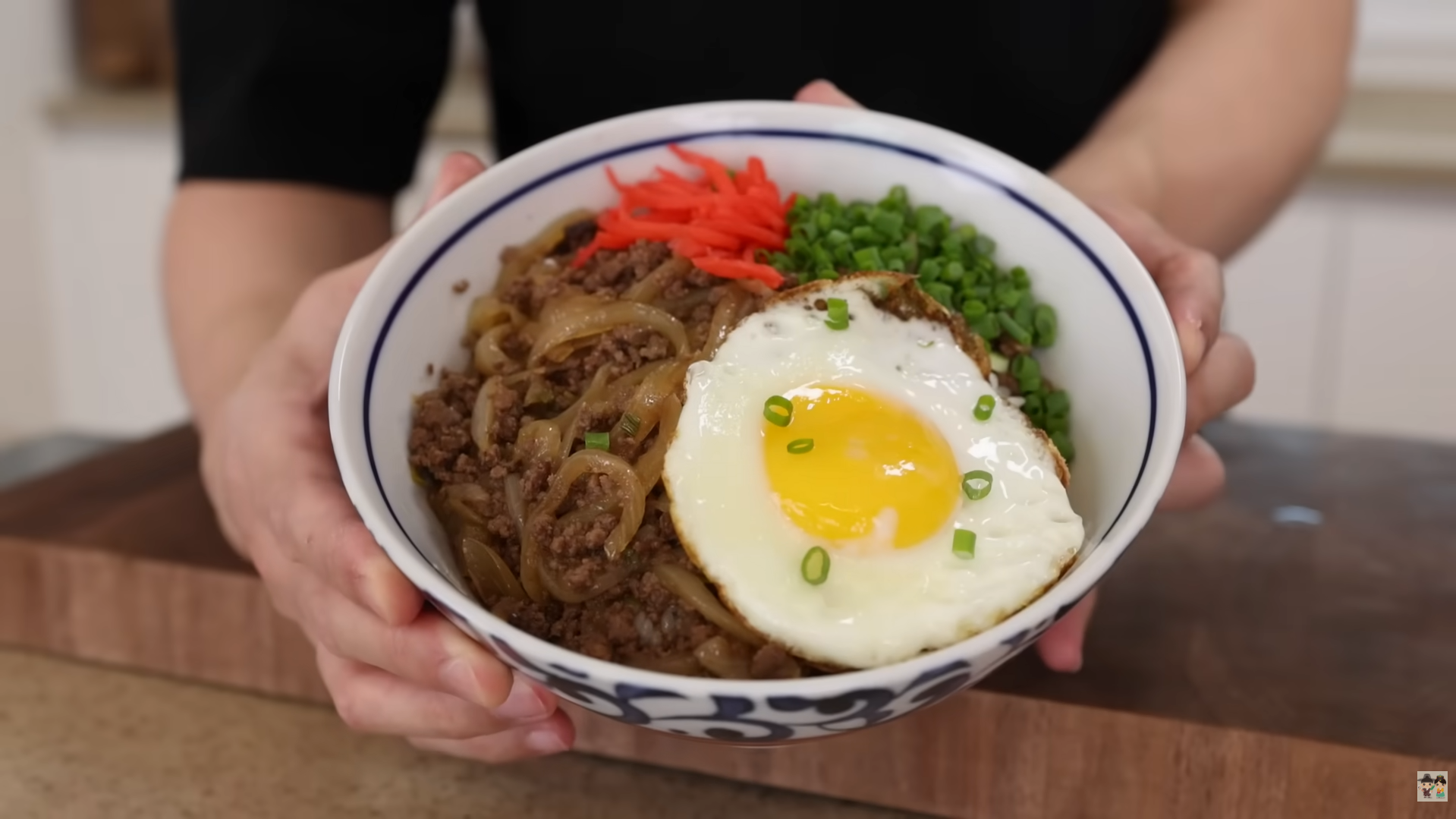
Aaron and Claire Show Us How to Make Gyudon!
If you’re looking for a Japanese comfort food that’s quick, affordable, and full of flavor, Aaron and Claire have a great option. In this video, Aaron shows how to make Gyudon using ground beef instead of the usual thinly sliced beef.



